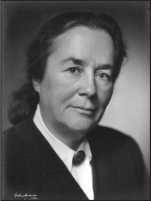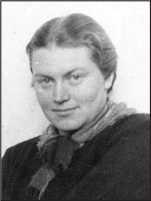Douglas W. Jacobson
The Founding of Zegota
Would you risk your own life and your family’s to save another human being?
“Zegota is a story of thousands of common people who did just that during the brutal Nazi occupation of Poland. The risk-takers were Polish Christians who saved Polish Jews destined for the death camps. They came from all areas of life, educated or not, religious or not, from large cities or small villages, as members of the Polish resistance or unorganized individuals. They all knew the possible price to be paid, nevertheless, they acted.”
—From Project InPosterum
Resistance was not new to the Poles whose country had been ravaged and partitioned by its enemies from the late 1700s until 1918. So, when the Nazi occupiers arrived in 1939, they resisted again. But none of them expected the depravity and brutality that quickly descended upon them. By 1942 this level of depravity had reached unimaginable proportions when more than a million Polish Jews had died of starvation and random massacres. It was now apparent that the Nazi occupiers intended to exterminate the entire Jewish population. Despite the laws that mandated the death penalty for anyone aiding Jews, hundreds of Polish Christians acted independently to help their Jewish friends and neighbors. But it wasn’t enough. Something had to be done to coordinate and organize this effort on a massive scale. That task was taken up by two Polish women, by the code-name ‘Zegota.’


Zofia Kossak was a conservative nationalist and well-known writer. Often a political opponent of most Jewish groups in pre-war Poland, Kossak was generally considered to be anti-Semitic. But that did not stand in her way of coming to the aid of Poland’s persecuted Jews when it mattered. As an ardent patriot she joined the polish underground resistance immediately after the war began and was soon on the Gestapo’s most-wanted list. She changed her name frequently and took up the crusade to organize aid to the Jews despite being constantly hunted by the Gestapo.
Wanda Krahelska-Filipowicz had been in the Polish resistance since taking part in a bombing attack on the Russian governor of Warsaw in 1908. Long a social activist, she knew many of the leaders of the Polish Home Army, AK, and was able to use her influence in recruiting help and funding for aiding Poland’s Jews.
Through the persistent efforts of these two women, the Zegota organization grew, including both Christian and Jewish underground activists, to the point where it had over a hundred individual cells operating in Warsaw, Krakow, Wilno and Lwow. Zegota delivered food, relief funds, medical care and, to those Jews in hiding on the ‘Aryan’ side, false identification papers. This relief was also delivered to Jews already imprisoned in several forced labor camps. Zegota operatives placed Jewish children with Christian foster families, orphanages and church organizations, all under the ever-present cloud of immediate execution should their actions be discovered.
Zegota could not stop what eventually became known as the Holocaust, which claimed the lives of more than six million European Jews. But there were several thousand Polish Jews who survived the war because of the heroism of common people who defied the occupier and risked their lives for their fellow man.
Douglas W. Jacobson is the Polish-American author of the awardwinning book, Night of Flames: A Novel of World War Two, and a frequent contributor to this newspaper. Mr. Jacobson has written a second historical novel set in Poland in World War II, The Katyn Order, which was released in May, 2011. Both books are available on-line and at any bookstore. You can visit him on the web at www.douglaswjacobson.com.
